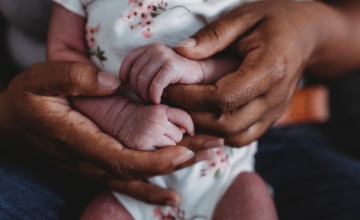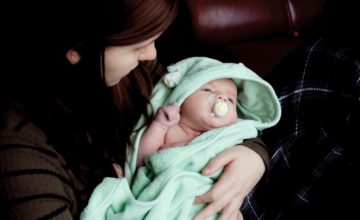In 2021 Minnesota passed HF 2128, an omnibus health and human services finance bill that included $4.5 million in state funds to significantly expand voluntary home visiting for pregnant people and families with young children.
In 2021 Minnesota passed HF 2128, an omnibus health and human services finance bill that included $4.5 million in state funds to significantly expand voluntary home visiting for pregnant people and families with young children. The funding will be disbursed through grants determined by the commissioner of health. The bill includes a stipulation that up to 25% of the grant money will be awarded to community organizations that have home visiting models that are evidence-informed or show promising practices. Such programs may offer home visiting to certain populations, for example specific immigrant or refugee communities, with proven outcomes within the community. A home visiting program created and implemented within a community may not have the national recognition to reach the evidence-based bar but still have much to offer. While federal Maternal Infant and Early Childhood Home Visiting (MIECHV) funding allows states to utilize a portion of their award for implementation of a promising approach, a rigorous evaluation of that approach is required. Most states do not take advantage of the promising approach option as a result.
The bill aligns with advocacy efforts from Minnesota’s Family Home Visiting Coalition and Minnesota’s Prenatal to Three (PN-3) Coalition. Minnesota’s PN-3 Coalition is a group of local, regional, and statewide early childhood stakeholders and coalitions. Their purpose is to raise awareness about the importance of the first years of life and to increase smart investments in Minnesota’s young children and their families. In 2016 early childhood leaders created a policy road map highlighting the need for better integration of family culture in all services, including home visiting. The policy road map further recommended that the state fund not only evidence-based home visiting but also invest in programs designed by community-based organizations with cultural knowledge and connections.
HF 2128 aligns with the recommendations of the Family Home Visiting Coalition and PN-3 Coalition by seeking out organizations already serving their communities. By creating funding for evidence-informed and promising practices the bill provides state- funded opportunities for programs that may align strongly with community cultural values and serve a specific population; it also honors the work done in communities to address long-standing disparities. The bill further states that grant awards to those agencies will include funds to evaluate program effectiveness outcomes on the MIECHV benchmarks. These areas fall under overall family health and safety, child development and education, family economic stability, and access to community resources.
Minnesota’s Department of Health is expected to release funds for evidence-informed and promising practice programs in 2022.
ZERO TO THREE has a suite of materials to support home visiting expansion, including a video playlist that features advocates from Minnesota talking about their efforts.




